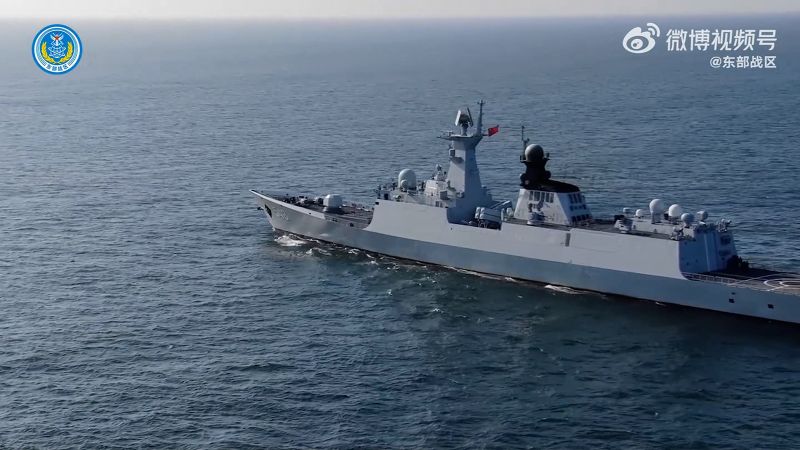China's Taiwan Drills: Testing US Resolve? A Deep Dive into the Geopolitical Implications
China's recent military drills surrounding Taiwan have sent shockwaves through the international community, raising concerns about escalating tensions in the Taiwan Strait and prompting questions about the US's commitment to defending the island nation. These exercises, described by Beijing as a response to Taiwanese President Tsai Ing-wen's meeting with US House Speaker Kevin McCarthy, are far more than a mere show of force. They represent a complex geopolitical gamble with significant implications for regional stability and the global balance of power.
The Drills: A Display of Military Might and Strategic Ambitions
The scale and intensity of the drills are unprecedented. China's People's Liberation Army (PLA) deployed warships, fighter jets, and ballistic missiles, simulating a blockade and potential invasion of Taiwan. These actions are not merely a reaction to the Tsai-McCarthy meeting; they are a calculated demonstration of China's growing military capabilities and its determination to assert its claim over Taiwan.
- Amphibious assault simulations: Drills focused heavily on amphibious landings, showcasing the PLA's advancements in projecting power across the strait.
- Air defense exercises: Intensive air defense exercises aimed to restrict access to Taiwanese airspace, highlighting China's growing air superiority.
- Missile launches: The launching of ballistic missiles into waters surrounding Taiwan served as a clear message of China's willingness to use force if necessary.
Testing the Waters: US Response and the Deterrence Dilemma
The US response has been crucial in gauging the limits of China's ambitions. While Washington has condemned the drills and reaffirmed its commitment to Taiwan's self-defense, it has avoided direct military confrontation. This carefully calibrated response reflects a complex dilemma:
- Maintaining ambiguity: The US policy of "strategic ambiguity" – neither confirming nor denying whether it would intervene militarily in a Chinese invasion – remains in place. This ambiguity is designed to deter China while avoiding a direct escalation.
- Economic pressure: The US and its allies have leveraged economic sanctions and diplomatic pressure to counter China's aggression.
- Strengthening alliances: Increased military cooperation with allies in the region, such as Japan and South Korea, serves to bolster a united front against potential Chinese expansionism.
Beyond the Drills: Long-Term Implications for Regional Stability
The long-term implications of these drills extend far beyond the immediate crisis. They represent a significant shift in the geopolitical landscape, raising several key questions:
- The future of cross-strait relations: The drills have further strained already tense relations between China and Taiwan, raising the likelihood of future incidents.
- The US-China relationship: The situation is testing the limits of the US-China relationship, potentially leading to further deterioration and heightened risk of conflict.
- Regional security: The drills have increased uncertainty and instability in the region, impacting trade, investment, and regional security cooperation.
Conclusion: A Precarious Balance
China's Taiwan drills are a stark reminder of the precarious balance of power in the Taiwan Strait. They serve as a test not only of Taiwan's resilience but also of the US's resolve and its ability to deter further aggression. The situation requires careful diplomatic maneuvering and a sustained commitment to maintaining regional stability. The international community must work collaboratively to de-escalate tensions and find a peaceful resolution to this complex issue. The coming months and years will be crucial in determining the future of the Taiwan Strait and the broader Asia-Pacific region. Failure to address the underlying causes of the conflict could lead to catastrophic consequences.
Keywords: China, Taiwan, military drills, US, geopolitical, tensions, Taiwan Strait, PLA, strategic ambiguity, deterrence, regional security, international relations, Tsai Ing-wen, Kevin McCarthy.

